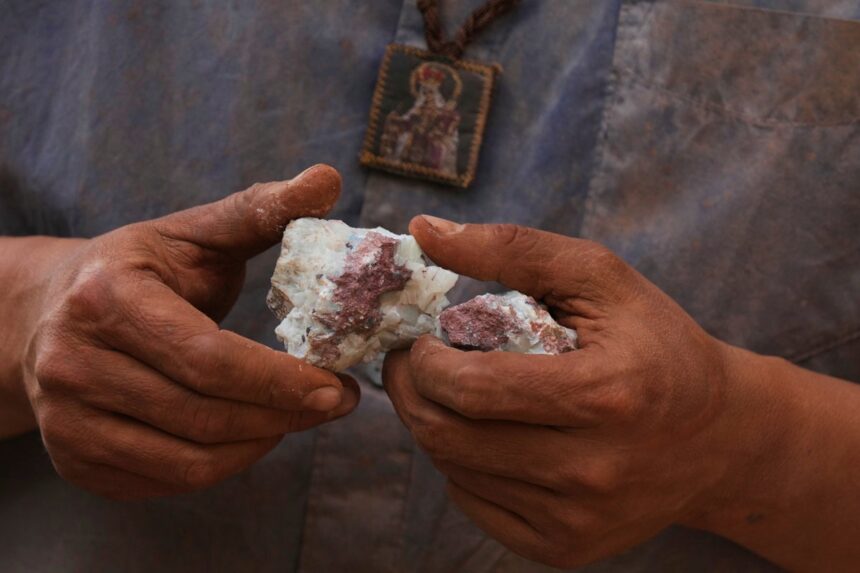A troubling surge in mercury mining is occurring in Mexico’s Sierra Gorda region, fueled by skyrocketing gold prices and an increasing demand for this toxic metal in illegal mining operations. Artisanal miners, like Hugo Flores, are digging deep into the mountains, risking their health and the environment for a chance to earn a living in a region where poverty is prevalent.
Mercury, a key component in illicit gold extraction, has seen its price soar tenfold in the past 15 years, jumping from $20 per kilogram to between $240 and $350 today. As miners carve through narrow tunnels searching for cinnabar—an ore containing mercury—they face the dire consequences of mercury exposure. Although the work sustains thousands of families, it comes at a high cost: the fragility of both human health and the surrounding ecosystem is under significant threat.
Mining operations in towns like San Joaquin have become a way of life, yet many miners acknowledge the personal risks involved. Fernando Díaz-Barriga, a medical researcher, highlights a grim reality where miners, motivated by financial considerations, willingly expose themselves to toxicity. The money they earn helps families survive, but it’s clear that the repercussions are dire, with many miners and their families suffering symptoms of mercury poisoning.
The mercury extracted is often trafficked illegally to countries in the Amazon, where it’s employed in harmful mining practices that have led to widespread contamination. As illegal operations fueled by criminal groups expand, the volume of mercury trafficked has risen sharply, raising concerns about both health and environmental degradation. Recent interceptions of large shipments underscore the gravity of this issue, as authorities scramble to curb illegal mining.
Research reveals alarming levels of mercury found not only in the environment but also in the miners’ blood. Symptoms such as tremors, vision and hearing loss, and neurological decline are rampant among those who have worked in the mines, yet many remain in denial about the long-term impacts of their exposure. Amidst rising mercury prices and a lack of viable job alternatives, the cycle of exploitation continues.
Government responses have been slow, and many miners feel abandoned, caught in a web of economic necessity and health hazards. They express skepticism about future economic programs aimed at transitioning away from mercury mining, citing broken promises and a perceived lack of support. Many fear that an abrupt crackdown on mining could lead to increased organized crime activity in the area, further exacerbating their already precarious situation.
With the Sierra Gorda region recognized as one of the most biodiverse areas in Mexico, environmentalists warn that continued mining poses a significant threat to endangered species and the local ecosystem. As pressures mount from both local communities and global entities, immediate action is essential to halt the cycle of mercury mining and its devastating impacts on both people and the planet.







